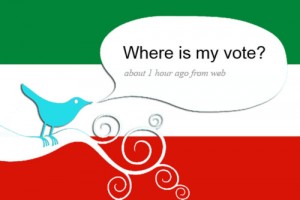Wired.com | September 29, 2010
By Jonah Lehrer
Just a quick note on Malcolm Gladwell’s Twitter/Social Change article in The New Yorker:
It’s an extremely thought-provoking piece, written with the usual flair. For those who haven’t read it, Gladwell argues that online social networks aren’t suited for “real” social activism, so all the utopian predictions about Twitter and Iran, or Facebook and Obama, will never come to pass. This is because, Gladwell says, online networks are all about weak ties — a weak tie is a friend of a friend, or a casual acquaintance — whereas real activism (he uses the example of the civil rights movement, led by Martin Luther King) depends on strong ties, or those people you know and trust:
There is strength in weak ties, as the sociologist Mark Granovetter has observed. Our acquaintances — not our friends — are our greatest source of new ideas and information. The Internet lets us exploit the power of these kinds of distant connections with marvelous efficiency. But weak ties seldom lead to high-risk activism.
[SNIP]
Enthusiasts for social media would no doubt have us believe that King’s task in Birmingham would have been made infinitely easier had he been able to communicate with his followers through Facebook, and contented himself with tweets from a Birmingham jail. But networks are messy: think of the ceaseless pattern of correction and revision, amendment and debate, that characterizes Wikipedia. If Martin Luther King, Jr., had tried to do a wiki-boycott in Montgomery, he would have been steamrollered by the white power structure. And of what use would a digital communication tool be in a town where ninety-eight per cent of the black community could be reached every Sunday morning at church? The things that King needed in Birmingham—discipline and strategy—were things that online social media cannot provide.
These are all worthwhile and important points, and a necessary correction to the (over)hyping of Twitter and Facebook. However, I think Gladwell’s denigration of weak ties in social activism is a bit misplaced. I’d like to begin by revisiting Mark Granovetter’s classic 1973 paper, eloquently titled “The Strength of Weak Ties.”
The paper is best known for its study of employment history. Granovetter found, for instance, that people were nearly three times as likely to have found their job through a “personal contact” than through an advertisement, headhunter or other “formal means.” In other words, success is largely about who you know, not what you learned in school or how you searched on Monster.com.
Furthermore, more than 80 percent of these helpful personal contacts tended be people we only saw “occasionally” or “rarely,” which is why Granovetter called them “weak ties”. The lesson is that your best friend probably won’t help you get a job. Instead, the unemployed should spend their time chatting with distant acquaintances on Facebook.


